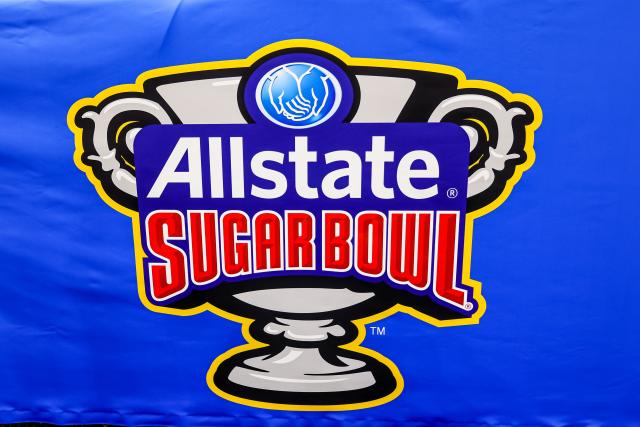The iconic Sugar Bowl, one of college football’s most prestigious events, has been postponed following a tragic and apparent terror attack on Bourbon Street early New Year’s Day. The decision, made to prioritize public safety and support law enforcement efforts, reflects the gravity of the situation that has shaken New Orleans.
The incident occurred in the early hours of January 1, when a driver, later identified as 42-year-old Shamsud-Din Jabbar, drove a pickup truck into a crowd of New Year’s revelers on Bourbon Street. The attack resulted in the deaths of at least 10 people and left 35 others injured. Jabbar, who was armed and wearing full-body armor, engaged in a shootout with police and was fatally shot at the scene.
Authorities, including the FBI, are investigating the incident as a potential act of terrorism. An ISIS flag was reportedly found in the suspect’s truck, intensifying concerns about connections to extremist networks. Additional security sweeps have uncovered explosive devices in the French Quarter, further complicating the investigation.
Originally scheduled for January 1, the Sugar Bowl—a College Football Playoff quarterfinal match between the Georgia Bulldogs and Notre Dame Fighting Irish—has been postponed to January 2. The game is set to take place at the Caesars Superdome, just a short distance from Bourbon Street.
Officials made the decision to delay the game to ensure the safety of players, fans, and staff, as well as to allow law enforcement the time and resources necessary to conduct thorough investigations in the area.
“The safety and security of everyone attending the Sugar Bowl is our top priority,” event organizers said in a statement. “This decision was not made lightly, but it is the right one given the circumstances.”
In the wake of the attack, the Caesars Superdome underwent rigorous security checks, and law enforcement has increased its presence in and around the venue. Visitors to New Orleans are being urged to avoid the French Quarter as investigators continue their work. The public has been advised to remain vigilant and report any suspicious activity.
“We are committed to ensuring that this event is safe for everyone,” said New Orleans Police Superintendent Michelle Woodfork. “We thank the public for their understanding and cooperation during this difficult time.”
The postponement of the Sugar Bowl is a significant decision for New Orleans, a city that prides itself on hosting major events and showcasing its unique culture. The attack has cast a shadow over the start of the year, with many residents mourning the loss of life and grappling with the implications of the violence.
“New Orleans is a resilient city, and we will come together to support the victims, their families, and everyone impacted by this tragedy,” said Mayor LaToya Cantrell. “We will not let this act of terror define us.”
While the Sugar Bowl has been delayed, it remains a symbol of resilience and unity for New Orleans. The game, now scheduled for January 2, is expected to draw thousands of fans and bring some sense of normalcy back to the city.
For now, New Orleans is focused on healing and supporting those affected by the tragedy. Vigils and memorials are being held across the city to honor the victims, while leaders emphasize the importance of standing together in the face of adversity.
As the investigation continues, the city and nation remain united in mourning, determined to overcome this senseless act of violence and move forward with strength and solidarity.

